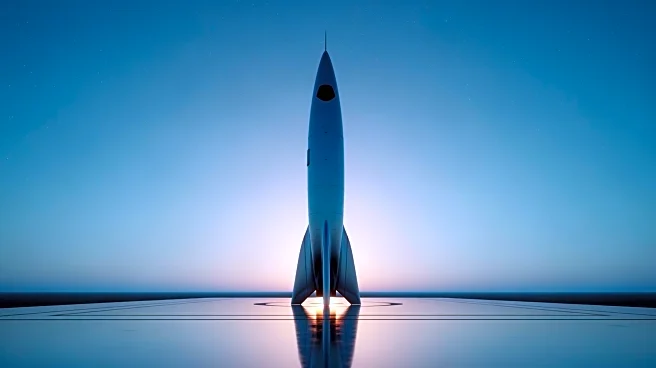What's Happening?
Blue Origin has successfully landed the booster of its New Glenn rocket on a drone ship in the Atlantic Ocean, marking a significant milestone in reusable rocket technology. This achievement occurred during
the rocket's second launch, which also deployed twin NASA spacecraft destined for Mars. The New Glenn rocket, developed by Jeff Bezos' company, aims to compete with SpaceX by offering a cost-effective option for sending larger payloads to space. The successful landing of the booster is a crucial step towards making the rocket system reusable, thereby reducing costs for commercial and government missions. The launch took place from Cape Canaveral, Florida, and the booster landed approximately 10 minutes after takeoff.
Why It's Important?
The successful landing of the New Glenn booster represents a major advancement for Blue Origin in the competitive space industry. By achieving reusability, Blue Origin can potentially lower launch costs, making space more accessible for commercial and governmental purposes. This development positions Blue Origin as a formidable competitor to SpaceX, which has dominated the market with its reusable Falcon rockets. The ability to reuse rocket components is essential for reducing the cost of space exploration and could accelerate the timeline for missions to the Moon and Mars. This achievement also supports NASA's goals for future lunar and Martian exploration, as Blue Origin is developing a lunar lander and has contracts under NASA's Artemis program.
What's Next?
Blue Origin will need to demonstrate the ability to refurbish and relaunch the New Glenn booster to fully capitalize on its reusability. The company is also focused on developing a lunar lander for NASA's Artemis program, with the goal of supporting future Moon missions. As Blue Origin continues to refine its technology, it may face increased pressure from NASA to expedite its lunar and Martian exploration plans. The successful landing of the New Glenn booster could lead to more contracts and collaborations with NASA and other space agencies, further solidifying Blue Origin's role in the space industry.









